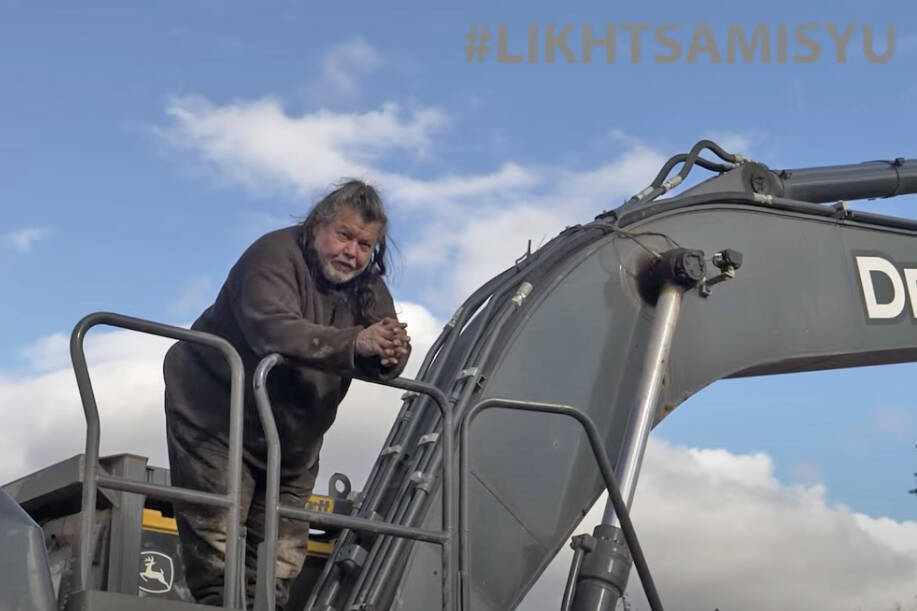Members of the Gidimt’en clan ordered all Coastal GasLink employees to leave the Wet’suwet’en territory in the interior of British Columbia on Sunday in a move the company said contradicts a court order.
Starting at 5 a.m. Sunday, the clan told workers they had eight hours to “peacefully evacuate” the area before the main road into the Lhudis Bin territory was closed at 1 p.m.
The development comes 50 days after the establishment of Coyote Camp, which halted efforts by Coastal GasLink to build an essential part of the 670-kilometre pipeline that would transport natural gas from Dawson Creek in northeastern B.C. to Kitimat in the province’s North Coast region.
Sleydo’, whose English name is Molly Wickham, is the spokesperson for the Gidimt’en Checkpoint, which controls access to the part of the Wet’suwet’en territory.
She said in a press release that the Wet’suwet’en hereditary chiefs have “never ceded, surrendered, or lost title to the territory” and that Coastal GasLink employees have been breaching both Indigenous law and an eviction notice that was issued nearly two years ago.
“They have been violating this law for too long,” she said.
In response to the eviction, Coastal GasLink said in a press release that a B.C. Supreme Court injunction issued Jan. 7, 2020 allows the company to have “continued safe access” to the area.
“This is in the same region where the group has illegally blockaded a Coastal GasLink worksite, in defiance of the B.C. Supreme Court injunction, since Sept. 25,” the release said.
“Our primary concern continues to be for the safety of our workforce and the public. Coastal GasLink has continued to seek dialogue to resolve this situation, however, to date these offers have not resulted in any response. We are actively monitoring this evolving situation.”
Jennifer Wickham, Gidimt’en Checkpoint media coordinator, said Gidimt’en Chief Dini ze’ Woos was in contact with officials from Coastal GasLink and that the clan had initially anticipated “full compliance.”
She said that around the 1 p.m. deadline, the company asked the chief for a two-hour extension for employees who were already on the sites to travel out of the territory boundary, but after two hours, no movement was made.
“I’m not sure what their intention was by asking for more time and then not doing what they said they would,” Wickham said. “I’m not sure how that benefits them.”
The 20 elected First Nations councils along the pipeline’s path approved the project, but Wet’suwet’en hereditary chiefs from all five clans of the nation claimed the project had no authority without consent through their traditional system of governance.
They issued and enforced an eviction notice against Coastal GasLink, sparking nationwide solidarity protests and paralyzing pipeline work throughout Wet’suwet’en land.
Wickham said Sunday’s eviction came with conditions that no RCMP officers travel past the 30 kilometre point on Morice River and that all workers leave peacefully without any violence or harassment.
“If either of those two things are breached, then the road would be closed immediately and they would have to figure out another way to get their employees out,” she said.
Dawn Roberts, the director in charge of B.C. RCMP communications, said police are aware of the notice and the situation is being monitored and continually assessed.
“We have had and will continue to have a police presence in the area. The primary responsibility of those officers has been to conduct roving patrols and respond to any complaints, but there has been no indications that I’m aware of that we were doing any enforcement today,” she said.
— Brieanna Charlebois, THE CANADIAN PRESS
RELATED: 2 more arrests at Coastal GasLink pipeline worksite near Houston

